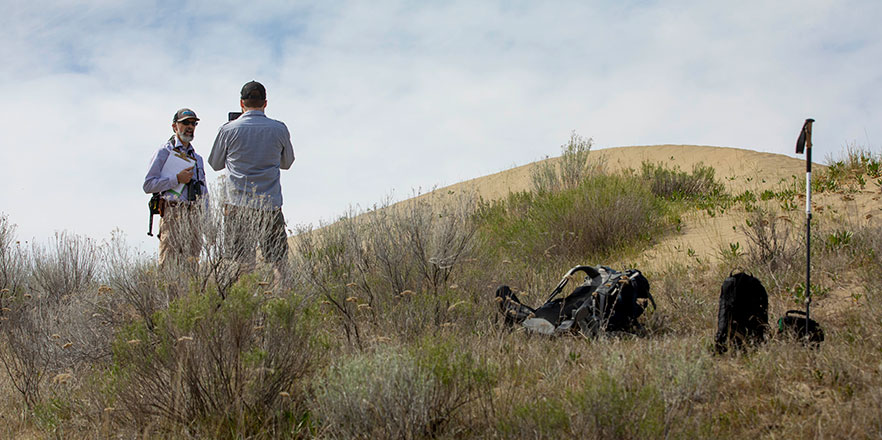Tim Parker Makes Biology Field Trips Accessible for Online Learning

Under normal circumstances, students in Associate Professor Tim Parker’s Natural History and Ecology lab course participate in weekly, five-hour field trips around eastern Washington.
Parker didn’t want his students to miss out on the opportunity to learn in the field now that Whitman College has moved to online learning in response to the COVID-19 pandemic.
So Parker is bringing the field to them, adapting his field trips and using video and photographs to make the trips accessible to his 22 students.
“It was the only method that I thought of that would allow me both to make sure students were exposed to evidence of particular ecological processes and to make sure I could guide them through the process of observing and recognizing the evidence and making the links to the processes,” Parker said.
With the help of biology lab coordinator Travis Morgan, they set out in the field to film in locations they were scheduled to visit together as a class, including Juniper Dunes Wilderness, located about an hour and a half drive north of Walla Walla in Franklin County, Washington. In the field, Parker prompts students with questions as he walks through the landscape, pointing out different species and specimens along the way. The class is designed for non-biology majors to learn how to read landscapes, and generate hypotheses about the history of the landscape and why it looks as it does in the natural world. The final videos are shared on YouTube for his students to watch and fill out their field notebooks with illustrations, site descriptions, reflections and observations based on their guided field trip.
Parker and Morgan wrapped up the semester with a final field trip on the theme of urban ecology, which they filmed on Whitman’s campus.
“It shows students how the principles we have been learning all semester can help them understand nature right out their front door,” Parker said. “After seeing this demonstration of urban ecological observation and interpretation, next week students will go outside where ever they are and conduct natural history observation in their own environments.”